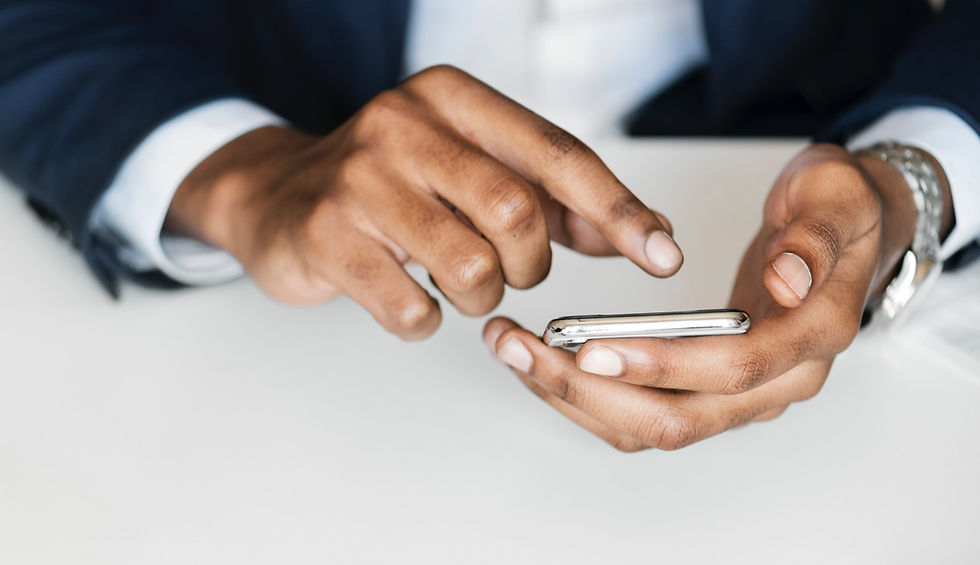The New Normal: Is Telehealth Here To Stay?
- Dominique Morgan Solomon

- Jun 17, 2020
- 3 min read
What COVID-19 Is Teaching Us About Online Medicine

Since the virus began circulating in America, telehealth offices in the country have been dispensing valuable advice to citizens in many states. Questions like, "I have a fever, but should I go to the hospital?" have been posed daily to telemedicine offices in many communities. And because COVID-19 is likely going to be around until there is a vaccine, receiving limited medical advice online is a prudent alternative to in-person appointments for many individuals, in many situations.
The information available via telehealth services isn't absolute, of course. But during the pandemic, we have learned a great deal about what kind of advice can be dispensed this way, and what kind is best left to more thorough, complete appointments delivered in the traditional way.
According to the American Telemedicine Association (ATA), four out of every five states moved to improve its telehealth services last year. And of course those statistics were released in late 2019, just before the coronavirus was on everyone's radar. Now, we've seen profound changes in American society meant to deal with the pandemic -- social distancing, business and plant closures, and "sheltering in place" orders from many states, only now being gingerly lifted in some locations. Telehealth played a pivotal role in getting information out to the public during these extraordinary times, and will continue to do so until the virus is tamed, either by herd immunity, or a vaccine, or both.
So, should we keep telehealth? Should we encourage folks to contact these officials not only for information about COVID-19, but to learn whether an in-person medical appointment, or a hospital visit, is required? And should it be even more widespread and accessible once the virus is in our rear view mirror, at least somewhat? Should states be encouraged to continue investing in telemedicine facilities?
From many perspectives, the answer is, and should be, absolutely.
First and foremost, telehealth provides users with much needed, first-step advice. Secondly, it allows patients to stay away from medical offices if they don't absolutely need to go, a sound measure because those offices, for all their surface sterility, may be filled with germs from sick patients. If the virus has taught us anything thus far, it is that staying away from risky environments is a vital part of keeping our communities safe.
More and more state governments are investing in telemedicine, never more so than right now, during the pandemic.
It is a measure that we should keep right across America. It helps patients, it eases caseloads for doctors when patients are kept from turning up prematurely or unnecessarily, and it's economical. Giving early medical advice from a safe distance is a measure we should encourage, fund, and advocate. Not only now, while the virus is raging in our communities in many states, but for the foreseeable future.
Thank you for reading the Morgan-Solomon Consulting Blog! We publish up to 4 articles a month about new trends in the Health Care Industry, all designed to give you insight and broaden your knowledge.
If you're interested in pursuing a career in the healthcare industry and aren't sure where to get started, shoot me an email at dominique.m.solomon@gmail.com. Would love to share my knowledge, direct you to resources, and connect you to opportunities.



Comments